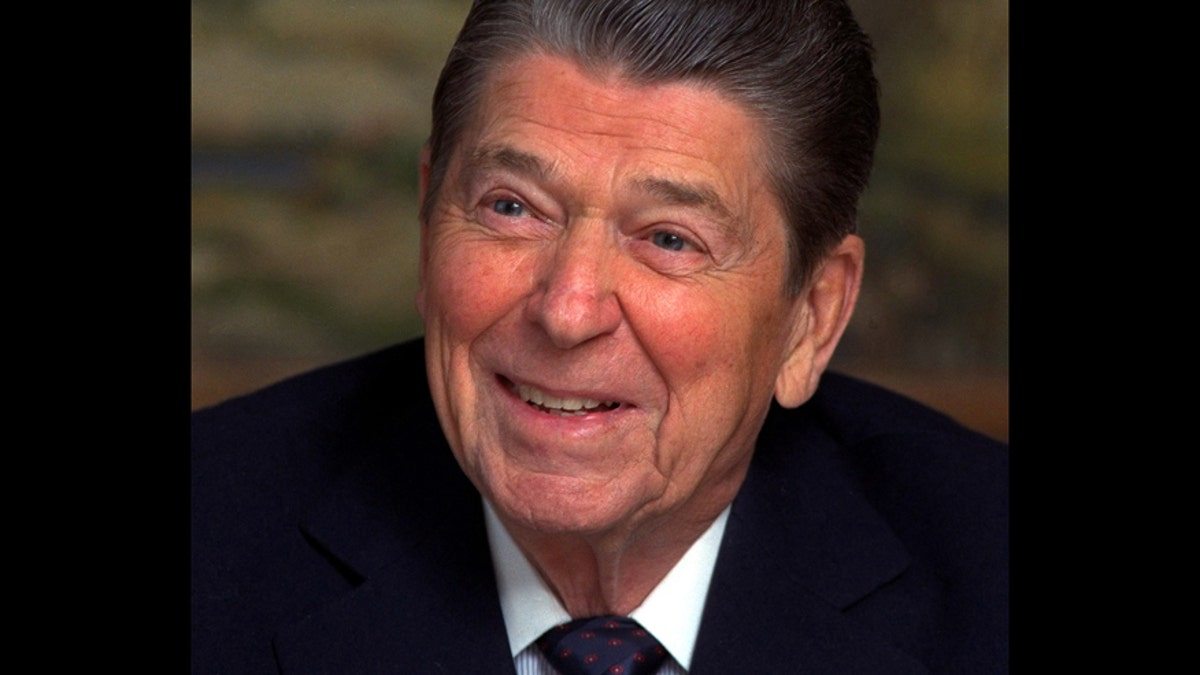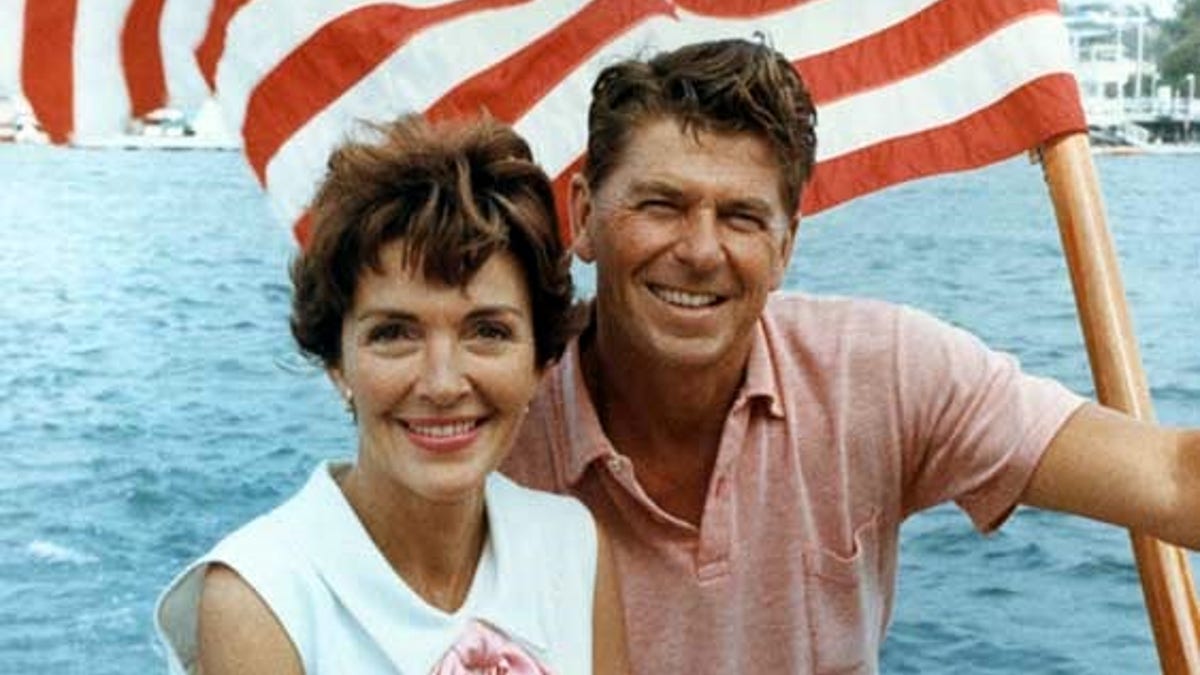
(AP)
I think often of my first boss – President Ronald Reagan – and how blessed I was to work for this great man. As we approach the Fourth of July and celebrate the greatness of America, I’ve been specifically thinking of him in the context of disturbing stories in the news and how political disagreements between Americans have escalated into personal demonization and even hatred for ideological opponents.
Recent examples of this include: White House press secretary Sarah Sanders being asked to leave a restaurant; Homeland Security Secretary Kirstjen Nielsen being harassed at another restaurant and outside her home; and Florida Attorney General Pam Bondi being forced out of a movie theater by protesters who surrounded her and shouted at her.
Another example is the call just a few days ago by Rep. Maxine Waters, D-Calif., for Americans to harass Trump administration officials. She told a group of people that “if you see anybody from that Cabinet in a restaurant, in a department store, at a gasoline station, you get out and you create a crowd. And you push back on them. And you tell them they’re not welcome anymore, anywhere.”
And a far more serious example was the gunman who was so upset at President Trump’s election that he opened fire on Republican members of Congress at a baseball practice a year ago. House Majority Whip Steve Scalise, R-La., was seriously wounded and nearly died.
President Reagan – who was badly wounded in an assassination attempt in 1981 that was not politically motivated – never engaged in the politics of personal demonization. He set the standard for respect that we would be wise to emulate still.
President Reagan – who was badly wounded in an assassination attempt in 1981 that was not politically motivated – never engaged in the politics of personal demonization. He set the standard for respect that we would be wise to emulate still.
As a young person, I believed (as many people do when entering the professional arena) that I would have to choose one of two paths – either be strong and successful, or be a person of good character and civility. And then I met President Reagan, who was the embodiment of both.
President Reagan was a person of unquestioned strength (he went toe to toe with the Soviet Union) and yet a gentleman personally and a politician who could work across the political aisle. He completely shattered my theory of having to choose – and he now, sadly, represents an era nearly gone by. America is facing the tragic and dire consequences of that loss.
In a nation that claims to stand for tolerance, inclusion and openness – and prides itself on being welcoming and accepting of people from all backgrounds, lifestyles and personal differences – that acceptance now seems to have drawn a red line in the sand of ideological tolerance.
On one side of that line are all the people who are demanding they be accepted for who and what they are or are advocating for the rights of others to be recipients of that respect and acceptance. On the other side of that line is anyone who disagrees with them – or who they even think disagrees with them for any reason, large or small.
The very people who say “that’s not who we are as a nation” with regard to immigration or discrimination should ask themselves why that same statement doesn’t appear to apply to all of their fellow Americans.

Can we disagree without being disagreeable? Can we demand acceptance and tolerance for ourselves and justify not giving it in return? Are we so afraid of dissenting ideas that we need to suppress them? And silence them? Is that who we are? Is that who we have become now?
I refuse to accept that premise and hope the voices of intolerance will realize the very rationale they use for justifying their hatred is the very right they themselves demand. They represent the hypocrisy of one-sided hate.
When we allow hate against anyone for any reason, that slippery slope of intolerance often winds up eventually undercutting our own footing.
Those who throw hatred toward others and wish to take away the right to have a differing opinion should be cautioned: they could find themselves on the opposite side of that red line of tolerance if the court of public opinion suddenly decides they are the enemy, or if they aren’t aligned with the groupthink of the moment.
As Americans we have always been on the forefront of big ideas, dreams, innovation and creativity. I believe we still have room for all of that – and don’t have to choose to be right or win to the exclusion of civility. That’s not who we are as a nation.
I hope the events of the past few days make us all take another look in the mirror and decide anew what we want that reflection to be. I hope we choose again to follow Ronald Reagan’s example and reflect the best of us – not the worst of us.
The political climate is not only hostile, it’s now bordering on dangerous. Can we return to a time of civility where we talk to people, not about them? We should embrace the essence of President Reagan and remember when he said: “Whatever else history may say about me when I'm gone, I hope it will record that I appealed to your best hopes, not your worst fears; to your confidence rather than your doubts.”
As a nation let’s step away from the dangerous brink of fear and doubt and hatred for each other. Let’s return to being hopeful and confident in the best of ourselves individually and collectively. That is who we are. And should be still.
What better way to rededicate ourselves to the American ideals that should unify us and that we celebrate on the Fourth of July?



















